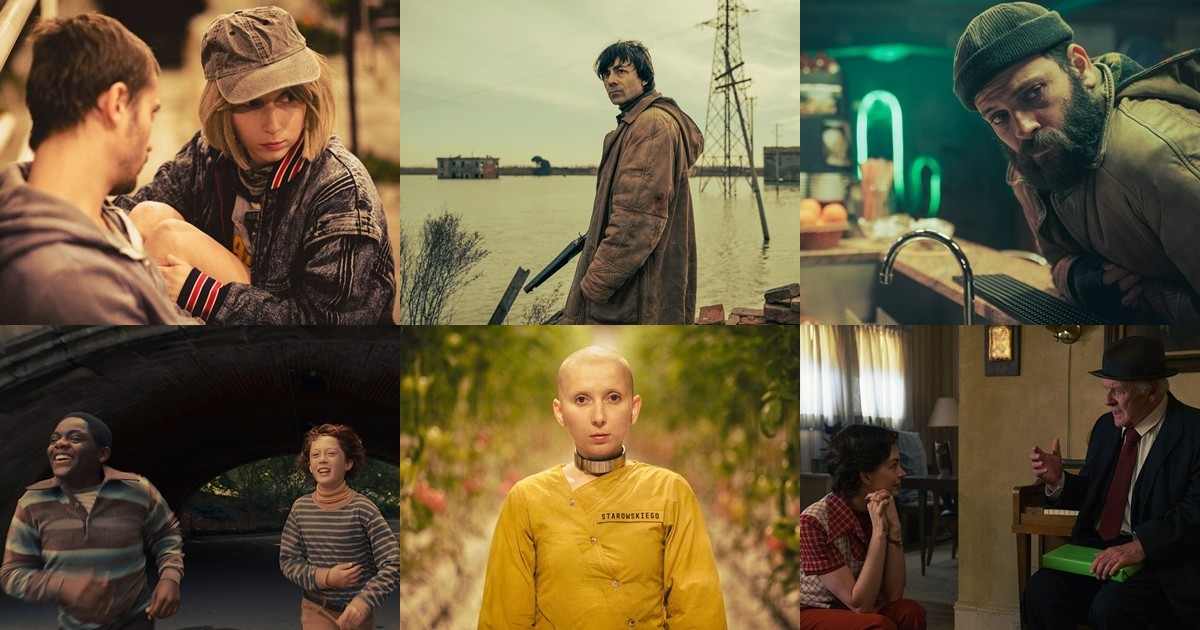
While the top ten of the Italian box offices proves more and less successful blockbusters like John Wick 4, Creed 3, Shazam 2 and the outgoing Scream 6 (apart from numerological ironies) and happy phenomena such as our local thriller The Last Night of Love with Pierfrancesco Favinotoday we talk instead of three movies validissimi released on March 23 that remained outside the glories of the weekly box office, despite having a lot to say. Let’s start from swampy Italy of Deltaenvironmental thriller by Michele Vannucci with the unpublished pairing Luigi Lo Cascio and Alessandro Borghi. We are on the Po delta where a community made up of fishermen and volunteer fish guards will attack a group of poachers who have come from the East. In the director’s own words, his second work really looks like “a river westerna contemporary conflict between indigenous communities and foreigners fighting along the border”.
Borghi barcarolo is still in the rocky physical phase of a mountaineer, but chameleonic as always in the language. He plays a mysterious Slav who also speaks Venetian, while the conscientious character of Lo Cascio represents the defense of a fragile environment, but never as much as human relationships which, remaining faithful to ideals, risk taking themselves to unimaginable extremes. Thus the choices in the face of violence branch out into a delta of possibilities immersed in the mud of the soul. There where no one can get without getting dirty. Not even the spectator, who in turn is asked to immerse the sand and dust of the westerns settled in his imagination in the river waters of this story is as hard as he is determined to reconstruct one of the most unknown Italian environmental scenarios on the big screen. The Po as we’ve never seen it before: in a story that shocks how much The Road by John Hillcoat e Out of the Furnace by Scott Cooper.
Let’s broaden our gaze to Europe. 2028: the girl found in the trash it’s a dystopian that sinks the needles into sci-fi without needing to show us visual effects. In this small Blade Runner Polish we live in a dictatorship where crimes are punished with collars that inject a substance capable of depriving people of will, memory and identity, transforming them into automatons. So slaves. One of them finds herself without her master, a fugitive and dangerous for society, but naive and pure how a newborn girl will be found by a social activist who became famous for announcing his impending suicide live online in protest for the human rights of automatons. Thus begins an unthinkable road movie, an escape to discover life and oneself, for one and the other.
Michael Krzywicki And Dagmara Brodziak they wrote and starred in the film and its two leads together, while the former directed it. This first work, in its simplicity and immediacy, is remarkable in form and substance. In essence it tells the relation between a woman who will have to be reborn to life from slavery and a man who wants to take it away with an act of extreme protest. This narrative gap can be tried to be interpreted as thin film poster against a right-wing Polish government, but also as a European vision towards the self-determination of the poorest across the border.
In the form, different genres are crossed for an idea of cinema that squeezes theessentiality of a story, the breath and lost eyes of characters suspended between idealism and an apparently hostile world. In this apparently there is the optimism of the authors towards people and the future. Not counting the pace of 2028. If in Blade Runner replicants yearned for independence and feelings, if in Farennheit 451 one aspired to the recovery of memory, if in the Planet of the Apes primates aspired to freedom from abuse and if in Minority Report we looked to the future by squeezing the powers of a few. Today with 2028 we have a new metaphorical fresco of individual self-determination against a comfortably castrating society. A composed artistic protest against the very current dehumanization of people.
We conclude by crossing the ocean to 1980’s New York Armageddon Time. He composes a family portrait punctuated by autobiographical suggestions James Gray. At the center the coming of age of a boy between his parents’ new school and his friendship with a boy of the same age, but black and from a slum, hence the incipit to show racism, white supremacy and Judaism without frills a bourgeois and respectable America divided between Reaganites and Democrats. Guilt, forced choices and social inequalities will surround the young Paul.
Soft scrolling and directing without strong jolts or changes of register, it maintains the sobriety of a bildungsroman and of the classic American family cross-sections. They make up a granite cast Anthony HopkinsAnne Hataway, Jeremy Strong and Jessica Chastain, cameos as know-it-all sister of Donald Trump. Although its protagonist, Paul, is the child prodigy Michael Repeta, an already remarkable talent in black phone, the film may appeal to more aged viewers than young ones. Perhaps the weak point of the product. In fact, for now it has reached ninth place in the Italian box office only on Tuesday 28th.
